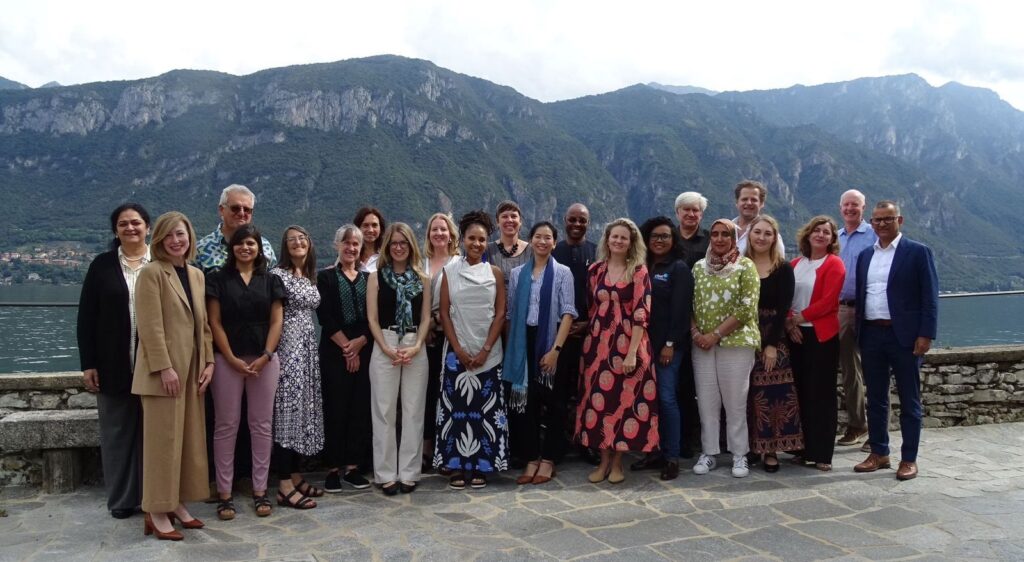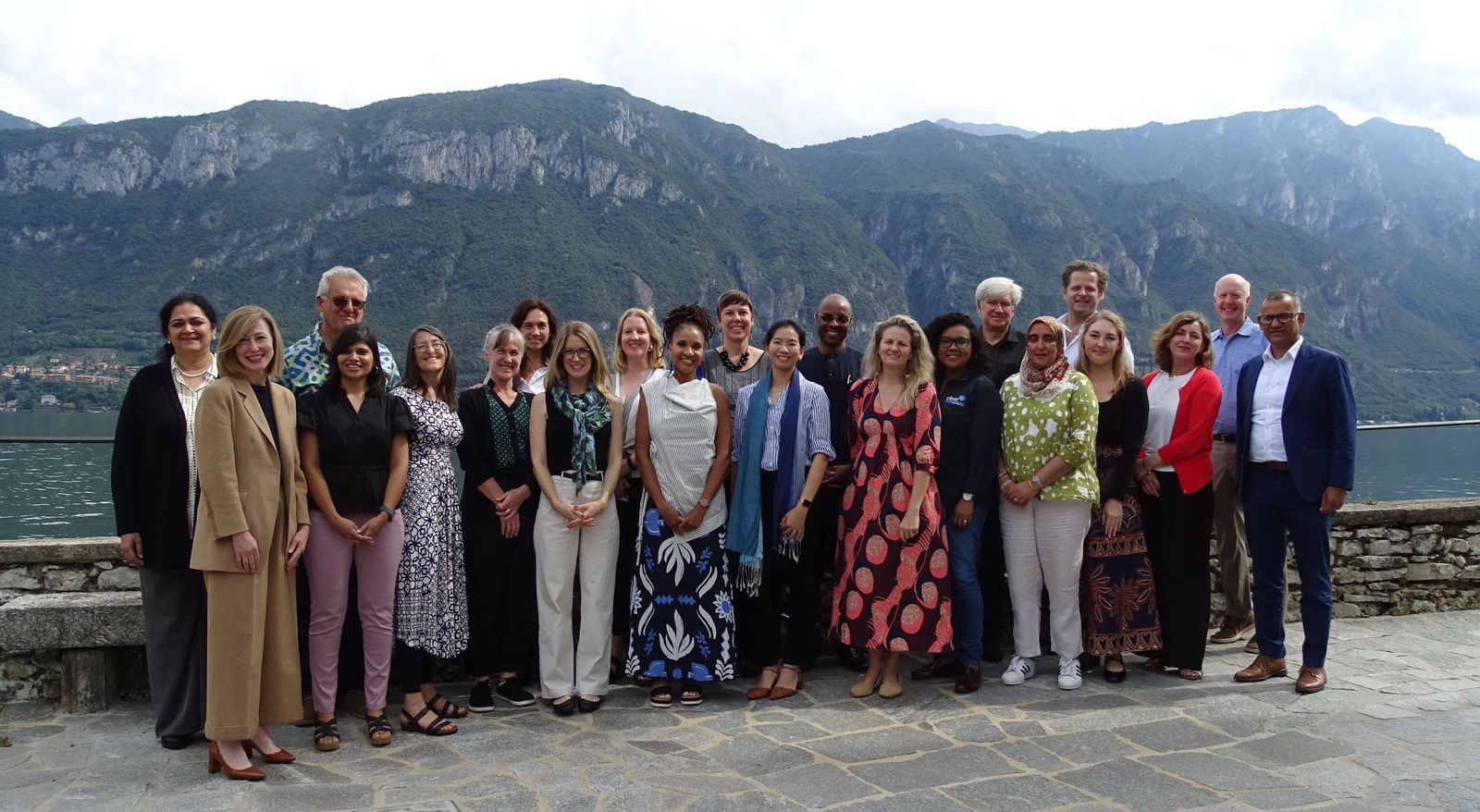Transforming Monitoring, Evaluation, and Learning for Real Impact in the Global Climate Change Crisis
/
By: Dr Shehnaaz Moosa (SouthSouthNorth Director)
In September 2024, I had the honour of being part of a unique and collaborative convening at the Rockefeller Foundation’s historic Bellagio Center on Lake Como, Italy, to contribute toward enhancing the relevance, strategic value, and impact of evaluation and learning in addressing the global climate change crisis. The participants were predominantly the evaluations community with organisational representation including the Adaptation Fund, The Green Climate Fund, The International Climate Fund, The Africa Development Bank and Philanthropies. This blog is a reflection of my key takeaways.

(Photo: Rockefeller Foundation)
Traditionally, Monitoring, Evaluation and Learning (MEL) was geared towards bridging trust deficits between donors and recipients — ensuring that funds were used as intended and demonstrating measurable impact. However, as the complexities of the climate change challenges grow, it is imperative that MEL transforms from a mere accountability mechanism to a robust tool for real learning and adaptive programming. This change is crucial for building resilience in communities bearing the brunt of climate change.
Who Benefits from MEL
- Donors and funders
Historically, MEL systems were designed to serve the interests of donors, who sought assurances that their investments were yielding tangible results. Monitoring and evaluation reports provided data-driven proof of progress, helping to foster trust and transparency between funders and recipients.
- Local communities
Those on the frontlines of climate change have the most to gain from effective MEL systems. By emphasizing learning and adaptation, MEL can facilitate the development of more responsive and effective programmes that meet the dynamic needs of those most impacted by climate.
- Implementing institutions
Implementing institutions can harness MEL to refine their strategies, improve programme design, implementation and outcomes. Learning from past successes and challenges empowers organisations to adaptively manage resources and projects.
- Policy and decision makers
Data and insights generated through MEL processes can inform policy decisions and contribute to a broader understanding of climate adaptation and mitigation strategies.
Shifting Towards Learning and Adapting
- Moving beyond accountability
While accountability remains a critical function of MEL, the focus needs to shift towards continuous learning. Programmes should aim to gather insights that can inform adaptive strategies, leading to more effective and sustainable climate interventions.
- Dynamic feedback loops
Implementing feedback systems that are agile and responsive can support organisations to respond to new challenges or insights. This flexibility is vital given the unpredictable nature of climate change impacts.
- Collaboration and knowledge sharing
Encouraging collaboration among stakeholders can drive innovation and facilitate the sharing of best practices and lessons learned, helping to build a global community of practice in climate resilience.
Conclusion
For MEL to truly support resilience building of those most impacted by climate change, it must evolve beyond its traditional role as a tool for satisfying donor requirements. By placing greater emphasis on learning and adapting, MEL can empower communities and organisations to confront climate challenges more effectively. As we move into an uncertain future, leveraging MEL as a mechanism for real learning and adaptive programming will be key to building resilient systems capable of withstanding what lies ahead.
Categories
Countries
CLARE Pillars
CLARE Themes
CLARE Topics


